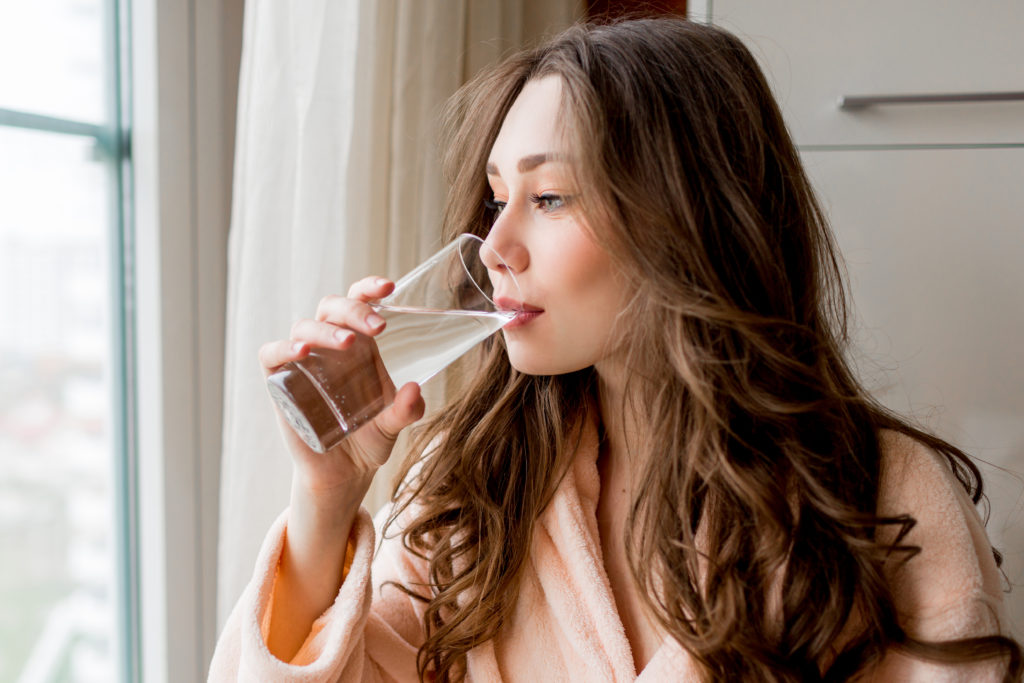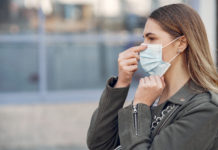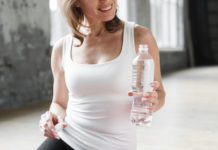What is the most common health recommendation you get from your doctor? Chances are, for most people it has something to do with staying hydrated. Truth is, getting your daily recommended intake of water is essential to maintain all major functions in your body within healthy limits.
Whether we talk about brain functions, blood circulation or any vital organ, water is the simplest way of staying healthy in the long run.
But how much water should you really drink every day? Today, experts answer all of our questions about this widely debated topic.
How much water should you drink?
The most popular recommendation is to drink at least eight glasses of water per day, which is the equivalent of a two-liter bottle. However, experts say that this classic piece of advice might not always be accurate.
Jessica Fishman Levinson, RD, MS, says that the ideal fluid intake varies widely depending on factors such as:
- Age
- Gender
- Physical activity level
- Location
In fact, your fluid requirements may even vary from day to day depending on your schedule and eating habits.
The Institute of Medicine of the National Academies of Sciences recommends 11-16 cups of fluids every day. However, the term ‘fluid’ is also very relative.
‘Fluid’ can mean a lot of things
Staying hydrated doesn’t mean only drinking water. From tea to milk or even foods rich in water such as watermelon, any other fluid sources can help you reach your recommended daily intake.
One of the best pieces of advice is to follow the clues given by your body: drink whenever you’re thirsty, eat whenever you’re hungry. Most of the times, you’ll get just the right dosage of fluids every day.
Mayo Clinic, a highly respected source of health information, says that the main recommendation should say ‘eight 8-ounce glasses of fluid,’ not water.
Coffee, for example, also counts as a fluid – but there’s a trick here. Caffeine falls into the category of diuretic foods and beverages, which means that it increases the frequency of urination. Since you urinate more, you’re also eliminating more fluid than usual; that is why it’s ideal to drink extra water with every cup of coffee you get.

Your diet also matters
As we stated earlier on, your body can also get a fair share of water from foods such as fruits and vegetables with a high-water content. Here are some of the best options to stay hydrated:
- Watermelon
- Cucumbers
- Lettuce
- Tomatoes
- Strawberries
- Oranges / grapefruit
If your diet usually includes one or more of these foods, chances are you’re well hydrated.
However, if most of your meals include foods rich in sodium (salt), you might need at least one extra glass of water daily. Why? Much like caffeine, sodium is a diuretic which increases urination and therefore making it more likely to be dehydrated. That’s exactly why we feel so thirsty after eating a bag of chips.
Secret signs of dehydration
If you’re feeling really thirsty, it’s obvious that you’re on the verge of dehydration – or already suffering from it. However, your body may also send some less obvious clues that it needs extra water:
- You’re feeling dry. When your body lacks water, it can reflect as dryness in various areas: dry mouth, chapped lips, lack of tears and dry skin can all signal dehydration.
- You get a headache. Specialists assume that dehydration also affects usual blood flow, which means your brain receives less oxygen than usual. With less oxygen also come headaches.
- Your muscles are weak. Subtle, constant muscle spasms, cramps or unexplained fatigue can be signs that you need more water.
- Your breath is bad. If you just ate an onion salad, having bad breath is understandable. However, if you’re struggling with this issue all the time, it might be caused by a lack of saliva – an essential substance for eliminating germs that cause odor.
ATTENTION! If you’re experiencing irregular heartbeat, having difficulty breathing, confusion or fever, you may suffer from severe dehydration. This is a life-threatening condition that requires immediate medical assistance.
In the end, the ideal daily water intake highly depends on your lifestyle, so you should stop trying to follow strict rules (unless they are provided by your doctor or nutritionist). Your body knows exactly how much fluid it needs daily, so you can trust your gut to live a healthy, happy life.


























